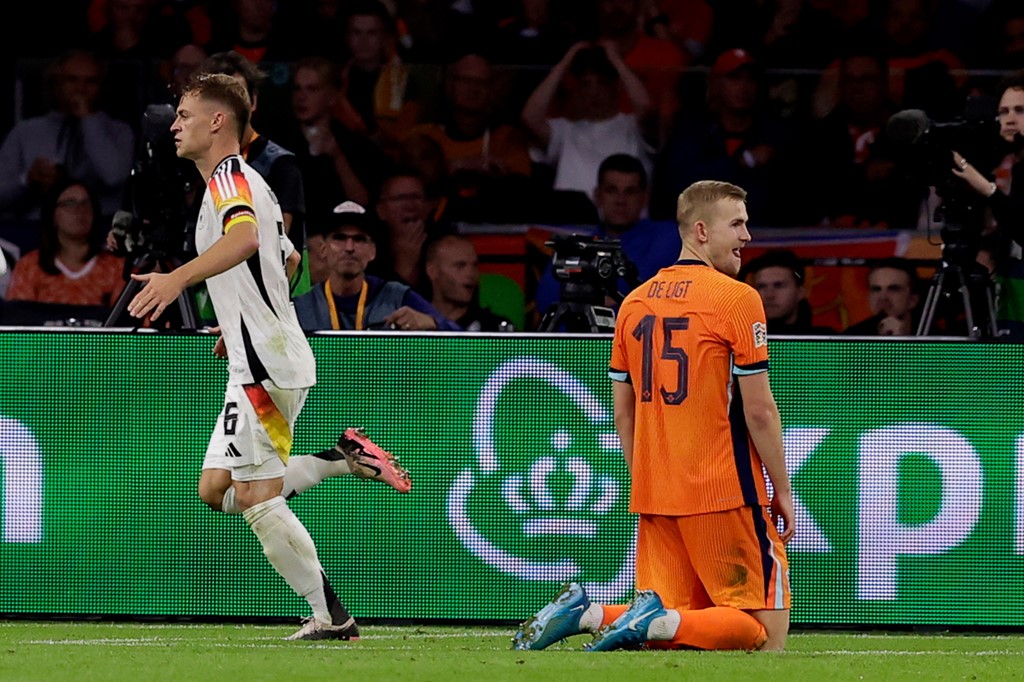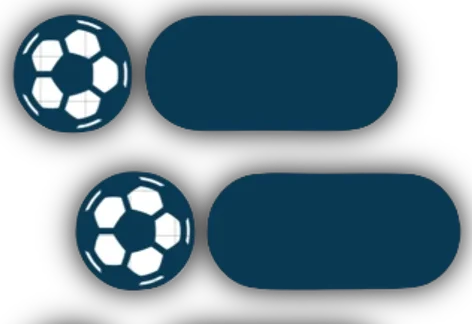
Matthijs De Ligt has been a shining star in the world of football, but even the brightest stars can dim at times. Recently, on Tuesday night, he found himself in a tough spot during the Netherlands’ 2-2 draw with Germany. His performance was criticized after struggling against Bosnia and Herzegovina just days earlier. This inconsistency raised questions about his current form and mental state as a young player under immense pressure. With all eyes on him, Dutch manager Ronald Koeman made the bold decision to substitute De Ligt at half-time—a move that sparked conversation among fans and analysts alike. What led to this pivotal moment? Let’s dive into the details surrounding this unfolding drama on the pitch.
Ronald Koeman made a bold move by substituting Matthijs De Ligt at half-time during the tense matchup against Germany. This decision raised eyebrows, but it was rooted in deeper concerns.
De Ligt's earlier performance had already been shaky. A costly mistake allowed Germany to capitalize and shift momentum right before halftime. The pressure seemed to weigh heavily on him.
Koeman recognized that leaving De Ligt on the pitch might only exacerbate his struggles. Protecting the young defender became paramount, even if it meant sacrificing tactical continuity.
The choice reflected Koeman’s understanding of player psychology. Sometimes, stepping back is necessary for growth rather than punishment. It was a testament to Koeman's experience and empathy as a manager navigating high-stakes situations with young talent like De Ligt.
The decision to substitute Matthijs De Ligt at half-time had immediate ramifications for the Netherlands' performance. With his departure, the team sought to regain control and stability on the pitch.
In that chaotic moment against Germany, De Ligt’s error led to a shift in momentum. The loss of confidence from one key player can ripple throughout a squad.
After his exit, there was a noticeable change in energy levels. Teammates pressed harder and communicated better. They seemed determined not to let individual mistakes define them collectively.
Though it was a setback, this situation also opened up opportunities for other players to step up. Emerging talents showcased their skills while containing Germany's threats more effectively after halftime.
The draw ended with mixed feelings—relief at salvaging a point yet tinged with disappointment over missed chances.
Matthijs De Ligt's reaction to being substituted was palpable. As he walked off the pitch, frustration etched across his face, it was clear this moment weighed heavily on him.
The young defender glanced at Koeman with a mix of disappointment and understanding. He knew that his performance hadn’t met expectations. The weight of responsibility can be daunting.
In the stands, fans watched closely, some sympathetic while others voiced their concerns. De Ligt has been through ups and downs before but in such high-stakes matches, every decision is magnified.
After sitting down on the bench, he took a deep breath and tried to refocus. It’s not easy for anyone in his position; scrutiny comes from all angles when you wear the national jersey.
His teammates rallied around him later, offering encouragement as they recognized how tough these moments can be for someone so young yet so talented.
Ronald Koeman’s decision to substitute Matthijs De Ligt at half-time sparked conversations among fans and analysts alike. His explanation was both candid and insightful.
Koeman recognized that De Ligt was in a rough patch, where even minor mistakes became magnified. He expressed concern for the young defender's mental state, suggesting that sometimes protection is necessary.
By taking him off, Koeman aimed to shield De Ligt from further scrutiny and potential loss of confidence. It wasn’t just about tactics; it was about preserving the player's future.
The coach emphasized his hope for De Ligt to regain form without undue pressure weighing on him during crucial matches. Such decisions highlight the fine balance between player development and immediate performance demands in professional football.
Being a young player in professional football is both exhilarating and daunting. The spotlight shines brighter as expectations soar. Fans, media, and coaches eagerly scrutinize every move.
Young talents like Matthijs De Ligt often face immense pressure to perform consistently. One mistake can lead to harsh criticism or even public ridicule. This burden can weigh heavily on their shoulders.
With social media amplifying opinions, the noise grows louder with each game. Supporters voice their frustrations instantly, making it hard for players to escape the scrutiny.
Moreover, transitioning from youth levels to international fame isn't easy. Players must adapt quickly while maintaining composure under high stakes.
The journey may come with setbacks and challenges that test resilience. But navigating this landscape shapes character and builds fortitude for future successes in an unpredictable sport.
Matthijs De Ligt’s struggles have not gone unnoticed by his teammates and fans alike. In the tough world of international football, support can be a game-changer.
His fellow players rallied around him after the match against Germany. They understand that every athlete faces ups and downs throughout their career. Encouragement from those who share the pitch can provide much-needed confidence.
Fans have also shown their unwavering loyalty. Social media was flooded with messages of support following Koeman's decision to substitute De Ligt at halftime. The Netherlands supporters recognize his talent and potential, reminding him they believe in his ability to bounce back.
Such backing is vital for young players under pressure. It creates an environment where mistakes become part of growth rather than moments of shame, fostering resilience among individuals like De Ligt as he navigates this challenging phase in his career.
Matthijs De Ligt is a player with immense potential. At just 24, he has already solidified his place in the national team. His talent was evident from a young age when he captained Ajax to remarkable victories.
Despite recent struggles, there's no doubt about his skill set. He possesses the physicality and technical ability that makes him stand out in defense. His leadership qualities also shine through on the pitch.
As he gains experience, there's an opportunity for growth. Young players often face challenges, but these moments can be transformative.
With support from teammates and coaching staff, De Ligt has every chance to rebound stronger than before. The future could see him becoming one of Europe's top defenders if he channels this period into learning and development.
Fans remain hopeful as they watch his journey unfold with the Netherlands squad. Each match presents a fresh canvas for De Ligt to showcase what he's truly capable of achieving.
The situation surrounding Matthijs De Ligt serves as a reminder of the highs and lows that come with being in the spotlight at a young age. Each player faces unique challenges, and for De Ligt, this moment might be an opportunity for growth rather than just a setback.
Ronald Koeman's decision to substitute him highlights the importance of protecting players when they experience rough patches. It’s crucial for coaches to recognize when their athletes need support instead of pressure.
As fans and supporters, we must remain empathetic towards these young talents navigating their careers amid intense scrutiny. The road ahead may have obstacles, but it also promises opportunities for redemption and improvement.
De Ligt has shown incredible promise before; there’s no doubt he can rise again from this challenge stronger than ever. After all, every great player has faced adversity—it's how they respond that defines their journey moving forward.

